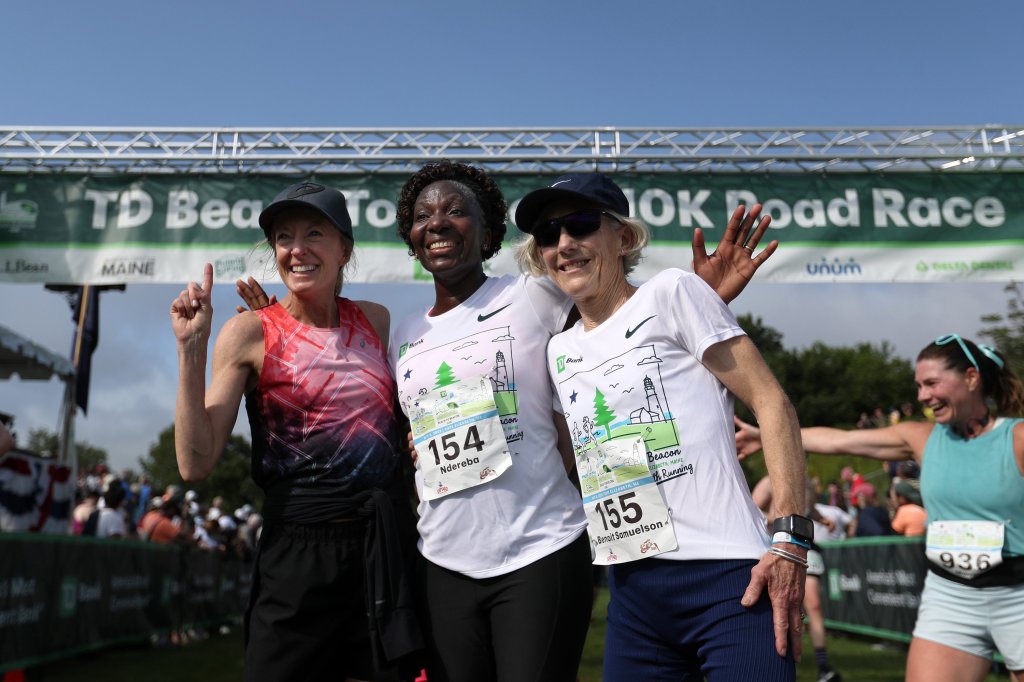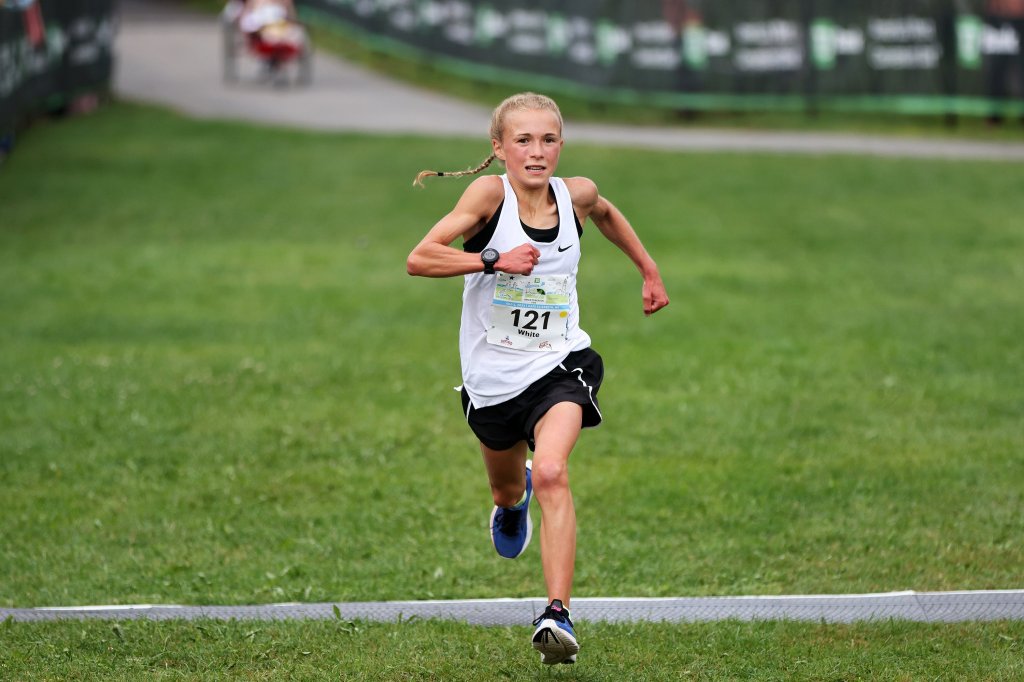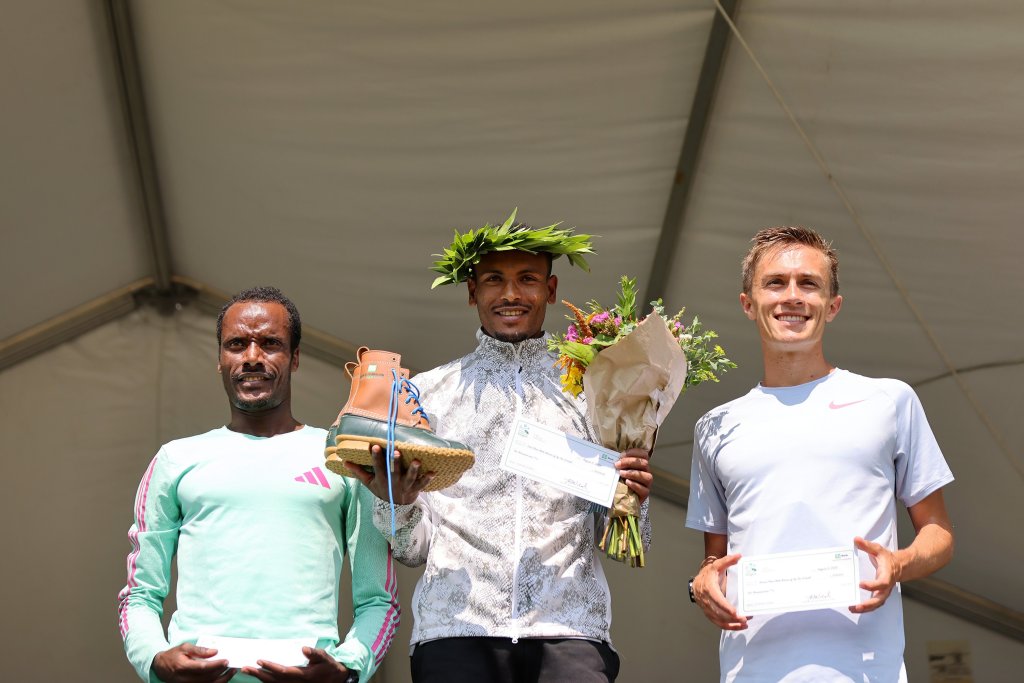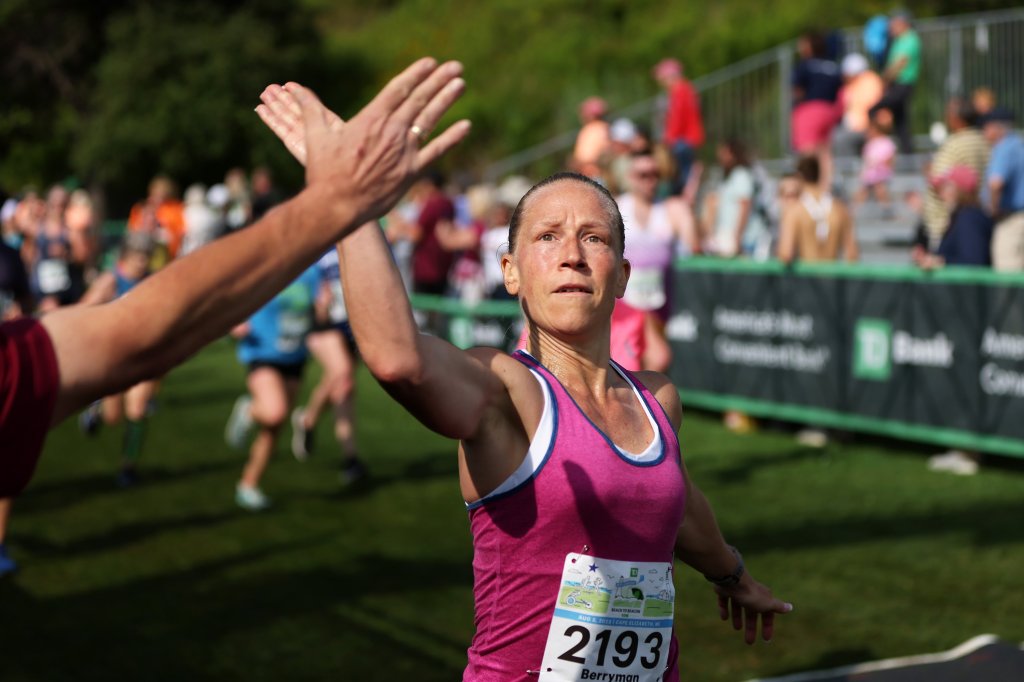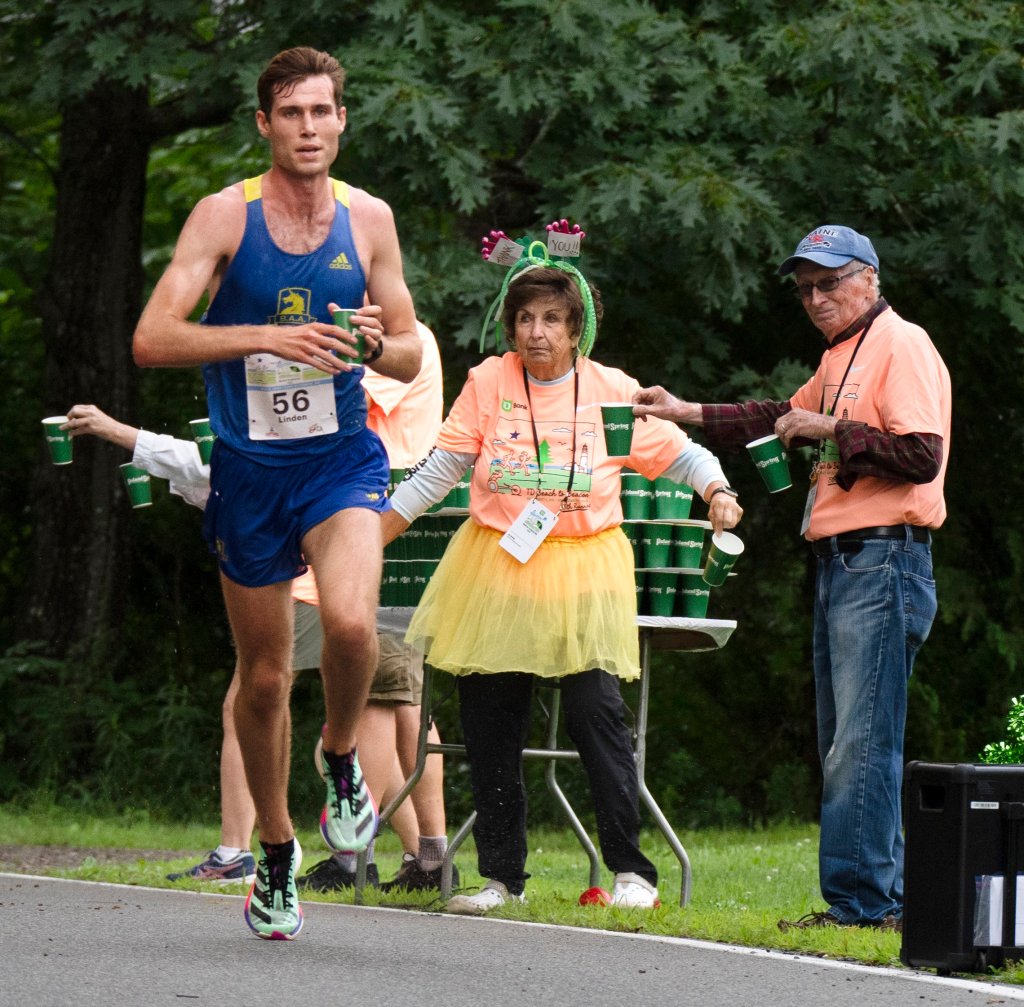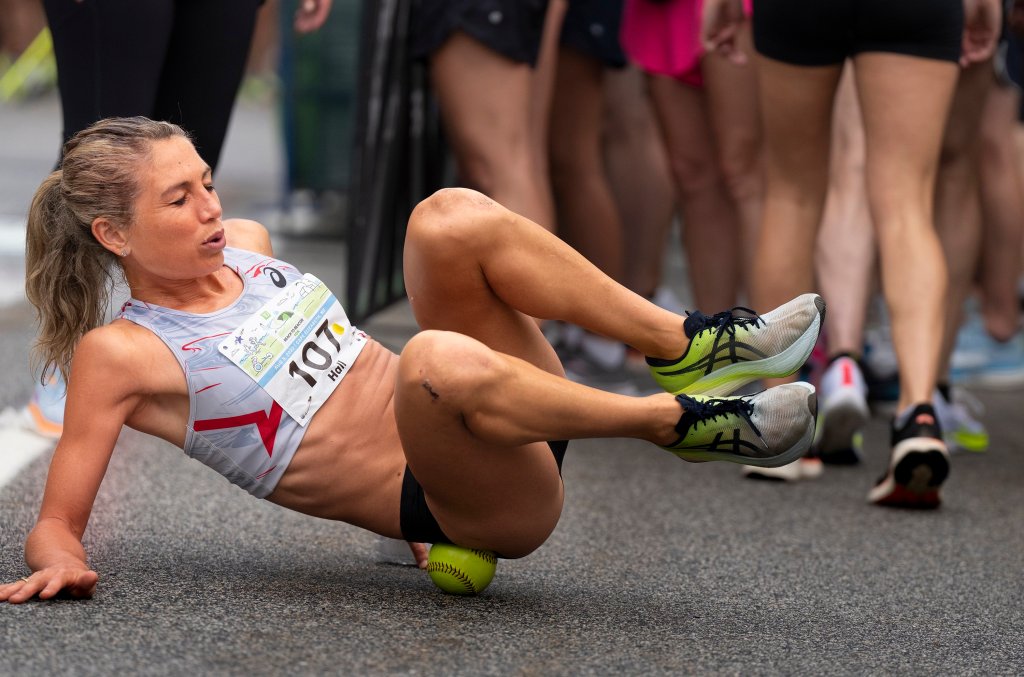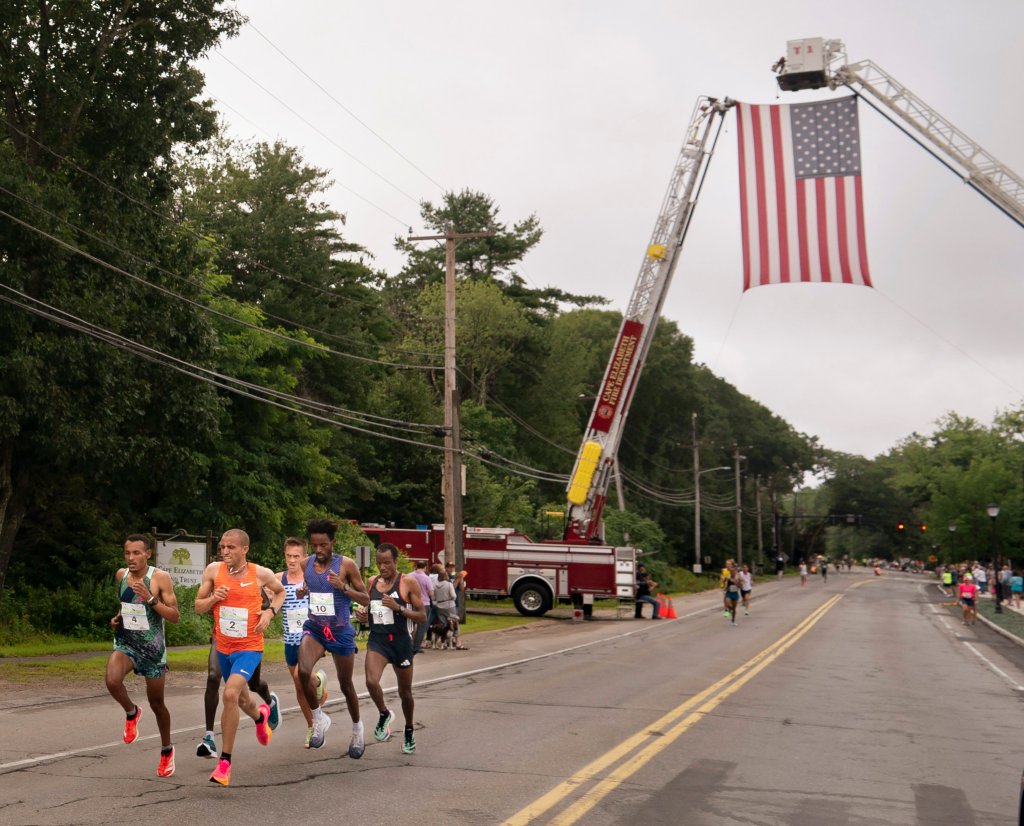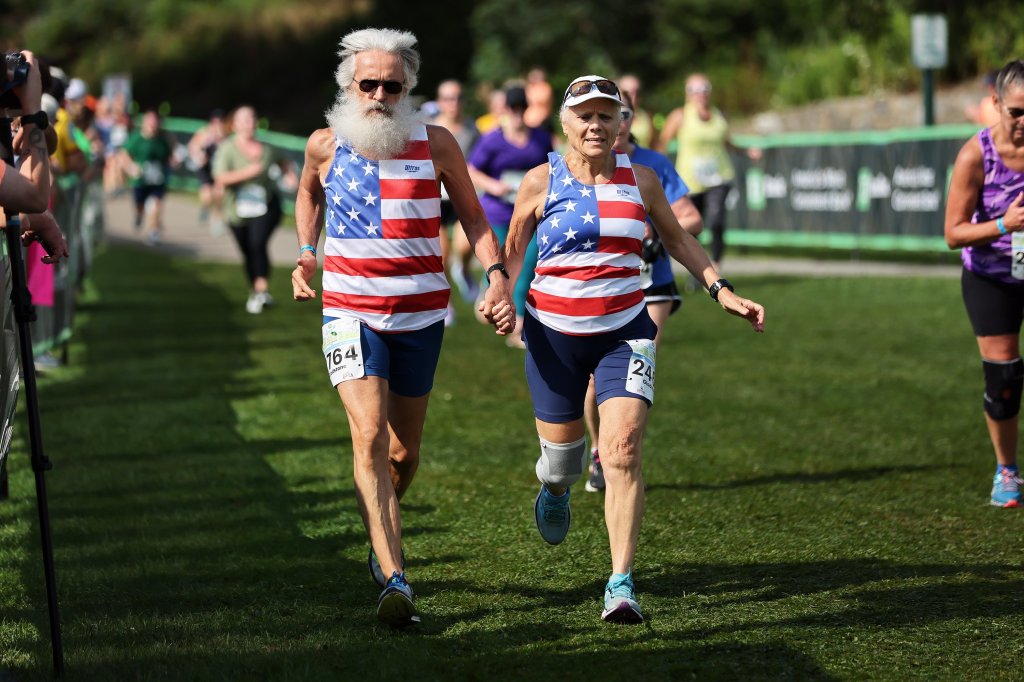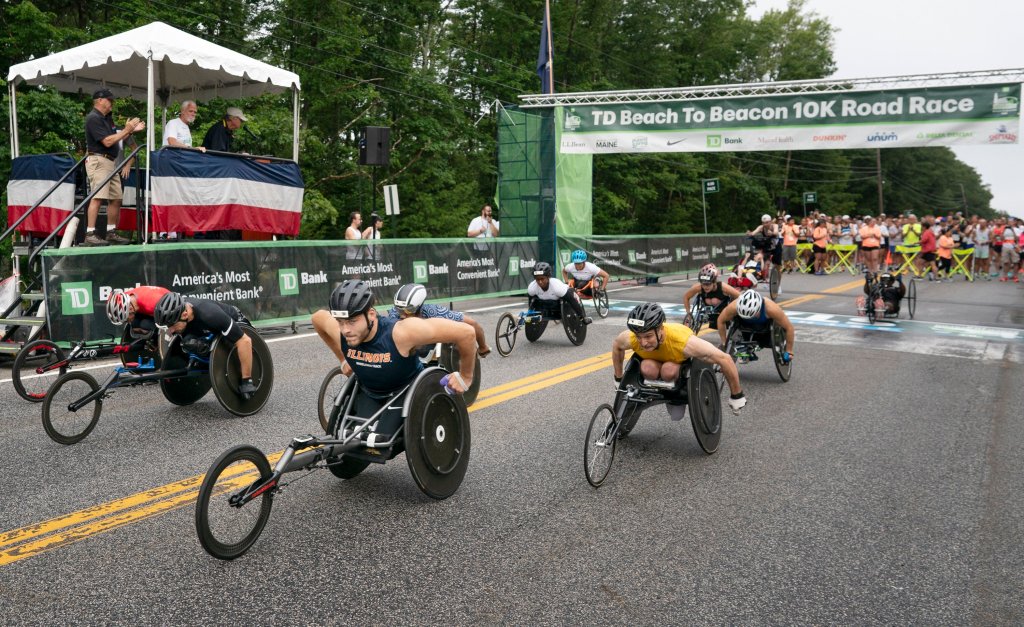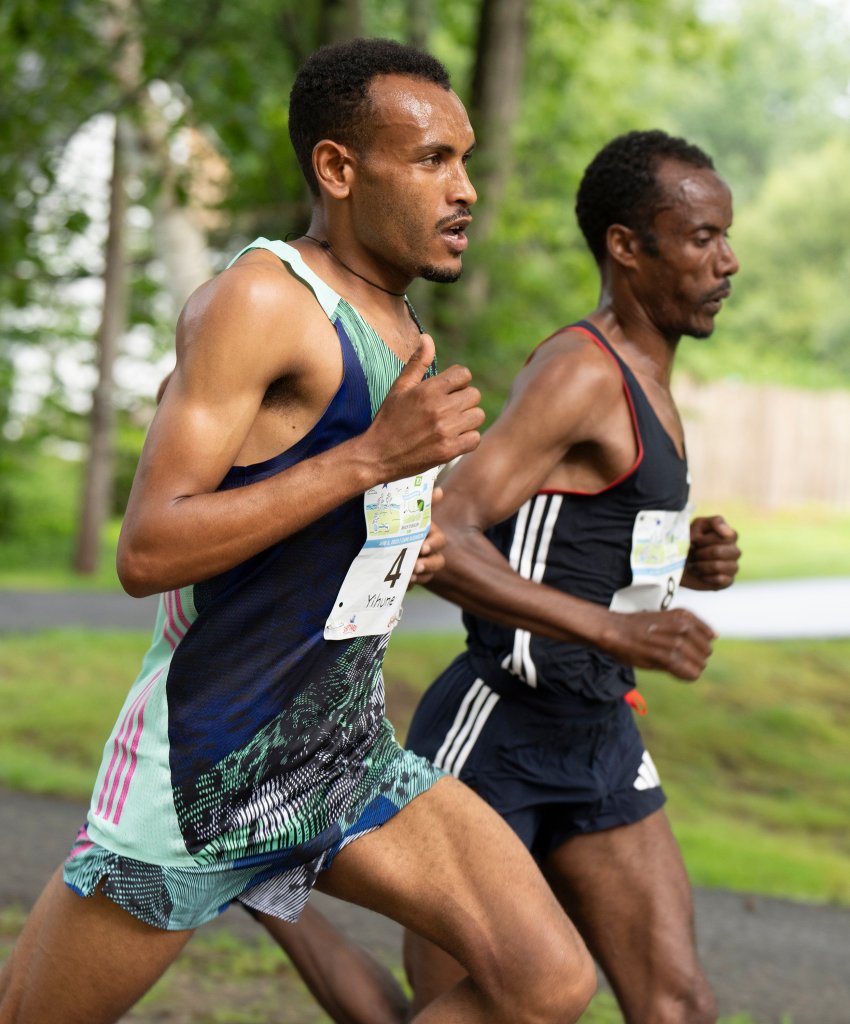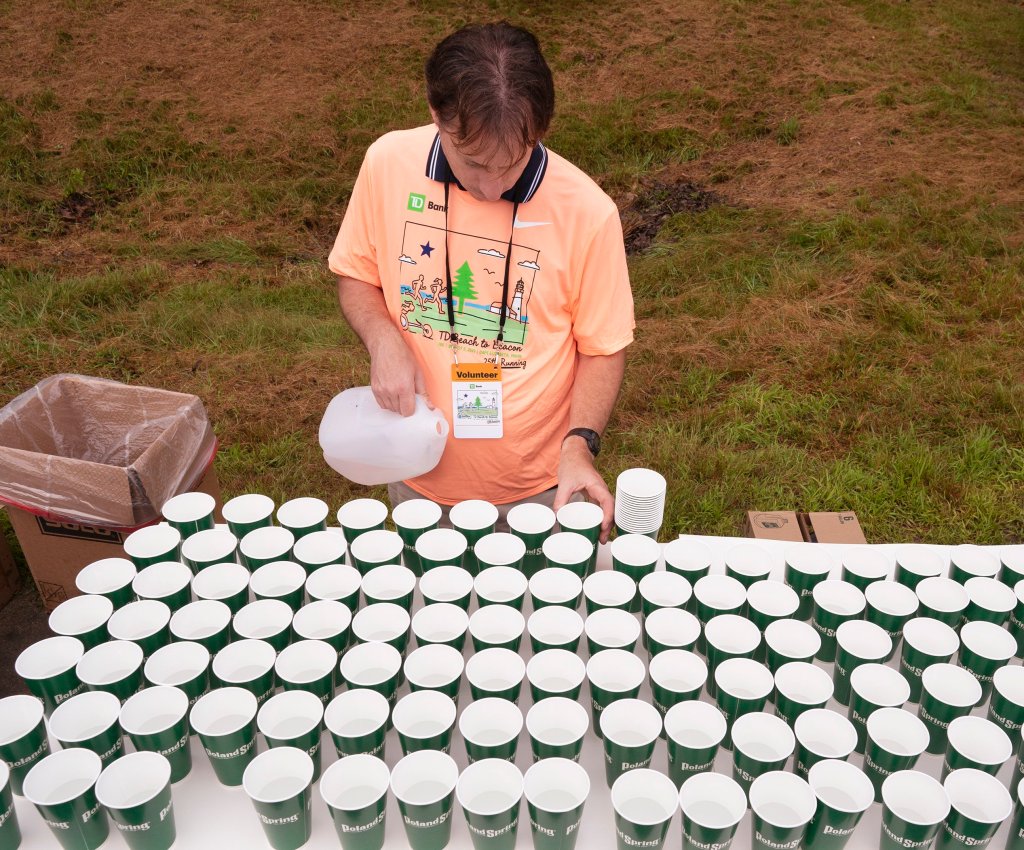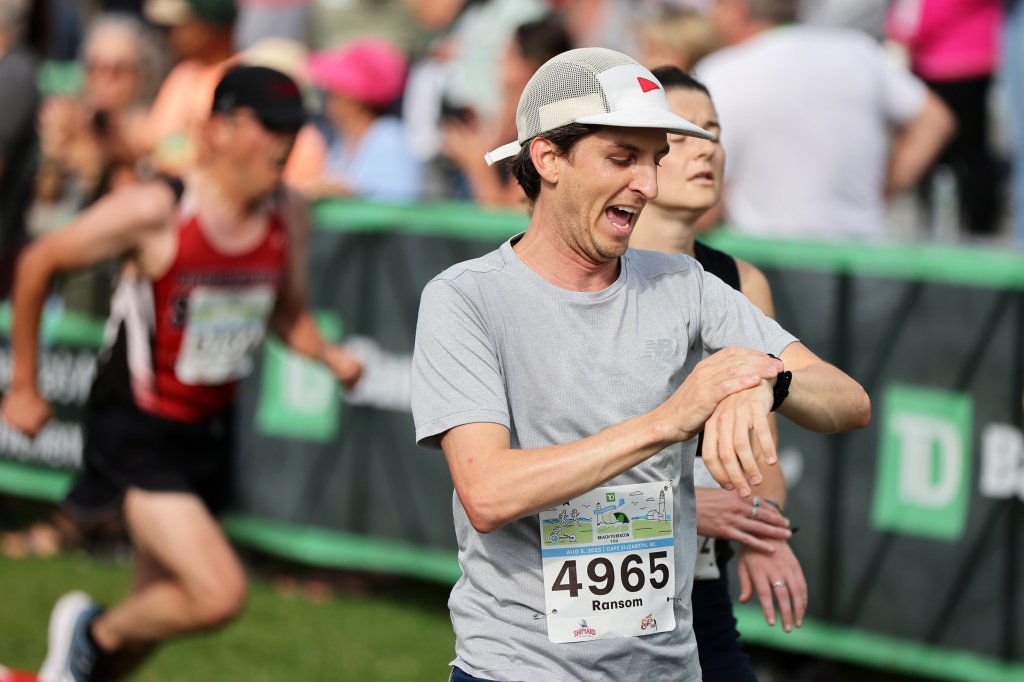CAPE ELIZABETH — When the sun broke through the Saturday morning fog just seconds into the elite women’s race, it was as if a message was being sent.
The TD Beach to Beacon 10K road race was back at full strength.
Shelved in 2020 and held virtually in 2021 because of the pandemic, Maine’s largest road race had 1,000 fewer finishers than normal and few international pros in 2022 when proof of vaccination was required.
But on Saturday, the 25th anniversary of the race founded by Olympic gold medalist and hometown product Joan Benoit Samuelson, the stars, spectators and recreational runners came out in force.
The men’s and women’s overall races were each decided by seconds. Hellen Obiri, 33, the reigning Boston Marathon champion, was a fitting women’s winner on the 39th anniversary of Samuelson’s win at the Los Angeles Olympics. Making her first appearance at Beach to Beacon, Obiri broke the tape in 31 minutes, 37 seconds, one second ahead of Fotyen Tesfay, 25, of Ethiopia, who had been on her heels since the 3-mile mark.

Hellen Obiri leads the pack of elite women’s runners Saturday at the Beach to Beacon 10K. Carl D. Walsh/Staff Photographer
“The course was amazing. Amazing course. The people were cheering, so I enjoyed all the way from one mile to the last mile,” Obiri said. “I enjoyed the trip and hopefully I will come back here next year.”
The men’s race provided plenty of competition and controversy. Runner-up Conner Mantz of Utah said he was pushed – twice – in the stretch run by winner Addisu Yihune, a 20-year-old Ethiopian running his first road race. Yihune finished at 27:56. Mantz, who said he was knocked off stride by the contact, crossed at 27:58. Yihune denied pushing Mantz.
Ruth White, the 17-year-old Orono High star, won the Maine women’s race in 34:56 and experienced what it was like to race against professionals. She started with the elite women and spent the first mile-plus running step-for-step with the second tier of elite women. White finished 17th overall in the women’s field.
“I was a little nervous about that. I was like, ‘I’m not sure if I should be here, but I’ll just hang on.’ I went through the first mile in 5:25, and 5:26, and thought, ‘OK, that’s reasonable,’ and I just thought it was really fun (and) if I had the opportunity to run behind them, I may as well take it,” White said.
Matt Rand, second a year ago in the Maine men’s race, set a personal best on a day when temperatures in the mid-to high-60s were ideal but high humidity kept race records intact.
“We got a pretty good weather day. It wasn’t as bad as prior years. You didn’t feel like you were just soupy wet the whole time,” Rand said.

Deena Kastor, left, Catherine Ndereba and race founder Joan Benoit Samuelson pose for a portrait Saturday after running the TD Beach to Beacon 10K. Samuelson finished with a time of 57:52. Ben McCanna/Staff Photographer
Even Samuelson, 66, got in on the racing fun. For the fifth time in the race’s history, she joined the field, this time running along with two other women’s marathon legends – Catherine Ndereba of Kenya, who won the Boston Marathon four times and Beach to Beacon five times, and Deena Kastor, who broke Samuelson’s American marathon record.
“To be with those two women who keep me going and inspire me was more than a gift,” Samuelson said. “I mean, this race is a gift to so many. I think the gift that they gave to me, by coming today, was on par with what this race is and stands for and gives to others.”
According to race officials, 6,537 of the approximately 7,100 runners who picked up their bib numbers finished the 6.2-mile race, making it the third-largest group of finishers behind the record of 6,885 in 2017 and 6,602 in 2015.
“The pandemic was tough for all of us. We partially came back last year. We totally came back this year,” said Dave McGillivray, Beach to Beacon’s race director since 1998. McGillivray also ran the course, as is his custom. “We had the greatest crowds out on the course that we’ve ever had.”
Hermin Garic of Utica, New York, successfully defended his title in the men’s wheelchair division with a time of 23:20. Yen Hoang of Vancouver, Washington, won the women’s wheelchair division at 28:24.

Legacy runners, 93 in total, gather for a photo at the starting line before the 25th annual Beach to Beacon 10K on Saturday. Gregory Rec/Staff Photographer
In the women’s race, Obiri and Tesfay were followed by Keira D’Amato of Virginia (31:58), who sprinted past Kenya’s Vicoty Chepngeno (31:59) in the final meters. While a relatively slow pace of 5:18 at the mile and 10:37 through two miles put Mary Keitany’s 2017 course record of 30:41 out of reach, it was just the fifth time the Beach to Beacon’s top four women broke 32 minutes.
Once the women’s field was whittled to the top four, Obiri was the sometimes reluctant pace-setter. Several times she motioned for Tesfay to take a turn at the front.
“Yes, sometimes you can say, ‘C’mon help me some (so) you don’t need to do all the work,'” Obiri said.
Tesfay never took Obiri up on her offer. Through a translator, Tesfay said she felt her best tactic was to run off Obiri and look to make a late move. Instead, Obiri, who has won world track and field championships at 3,000 meters indoors and 5,000 meters outdoors, trusted her sprint speed, increased the tempo over the final two-tenths of a mile, and surged to the $10,000 first-place prize. Tesfay pocketed $5,000.

Spectators cheer on competitors approaching the finish line during the Beach to Beacon 10K on Saturday in Cape Elizabeth. Carl D. Walsh/Staff Photographer
D’Amato, 39, looked capable of winning for most of the first four miles. She often was on the opposite side of the road from Obiri, Tesfay, and other leaders, trying to use more precise tangents to lessen her actual distance.
“I don’t want to have to run any further than I have to,” said D’Amato, who earned $3,000 for third place plus $5,000 as the top American woman. A four-time All-American at American University, D’Amato took an eight-year break from racing before returning to competition in 2017. She will represent the U.S. later this month in the marathon at the world championships in Budapest, Hungary. D’Amato was eighth in that race last year.
“I’m happy. I’m definitely leaving here with some confidence,” D’Amato said. “There are two places I like better than third, but, um, being on the podium, I’m happy with that, especially with the caliber of athletes I’m on the podium with. I mean, Hellen’s the best in the world.”
In the men’s race, Mantz, 26, was visibly upset when he finished. He said Yihune, 20, twice pushed him in the final quarter-mile, both times causing him to break stride and bang into the fencing that separated the runners from the crowd. Yihune, through the translation of countryman and third-place finisher Muktar Edris (28:06), said he did not push Mantz. Yihune, competing in his first road race, said he was merely closing the lane to block Mantz’s path. Mantz, who had a fresh abrasion on his upper left arm, said that the first incident with about 400 meters to go could have been accidental or unintended, but not the second bump with about 200 meters to go.

Conner Mantz of Provo, Utah, reacts after crossing the finish line to earn second place in the men’s division of the Beach to Beacon 10K on Saturday. Montz claimed that he was shoved by the winner, Addis Yihune, toward the end of the race. Ben McCanna/Staff Photographer
“The second time I tried to pass him there was plenty of room. Enough for two people to pass on his left. The second time, I hit the fence pretty hard,” Mantz said. “I hate this because there’s a part of me that feels like I got [cheated], but I also don’t want to go out and protest and like make it into somebody else’s bad experience.”
Yihune earned $10,000 for the victory. Mantz also earned $10,000 – $5,000 for finishing second and another $5,000 as the top American.
Send questions/comments to the editors.




